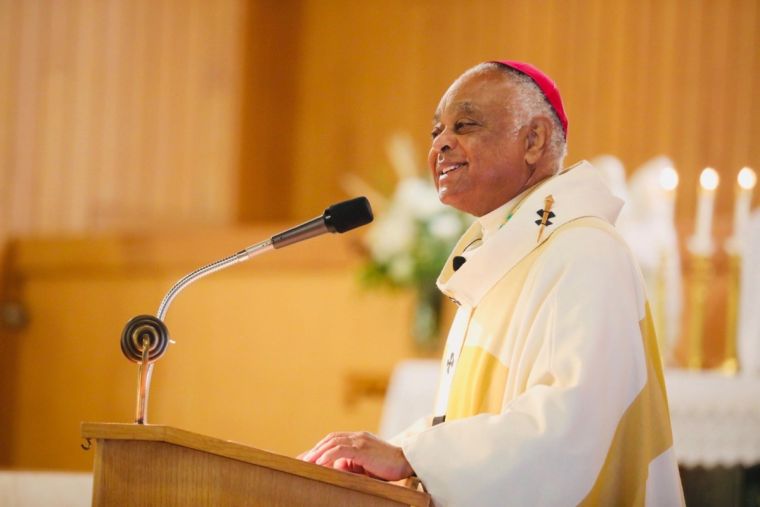US gets its first African-American cardinal

Archbishop Wilton Gregory, of Washington DC, is going to be the US' first African-American cardinal. Pope Francis announced his name among the 13 new members of the Catholic Church's highest governing body on Sunday.
Making the announcement from a window overlooking St. Peter's Square, Pope Francis said the 13 men will be officially appointed cardinals in a ceremony called a consistory on Nov. 28, according to The Wall Street Journal.
"With a very grateful and humble heart, I thank Pope Francis for this appointment which will allow me to work more closely with him in caring for Christ's Church," Archbishop Gregory said in a statement Sunday.
Earlier this year, the 72-year-old archbishop spoke out against racism in the United States after the death of a black man, George Floyd, in the custody of Minneapolis police in May.
"Many of us remember similar incidents in our history that accompanied the Civil Rights Movement, where we repeatedly saw Black Americans viciously brutalized by police on television and in newspaper photos," the archbishop said at the time. "The horror of George Floyd's death, like all acts of racism, hurts all of us in the Body of Christ since we are each made in the image and likeness of God, and deserve the dignity that comes with that existence."
In the United States, the Catholic population is estimated to be 72 million, out of which about 3 million are African American. The country has 250 black priests and 400 black nuns.
"The naming of the first African American cardinal from the United States gives us an opportunity to pause and offer thanks for the many gifts African American Catholics have given the Church," Archbishop José Gomez of Los Angeles said in a statement.
Gregory criticized President Donald Trump after Trump visited a Catholic shrine, the Saint John Paul II National Shrine, in Washington in June.
"I find it baffling and reprehensible that any Catholic facility would allow itself to be so egregiously misused and manipulated in a fashion that violates our religious principles, which call us to defend the rights of all people, even those with whom we disagree," he said in a statement.
"Saint Pope John Paul II was an ardent defender of the rights and dignity of human beings. His legacy bears vivid witness to that truth. He certainly would not condone the use of tear gas and other deterrents to silence, scatter or intimidate them for a photo opportunity in front of a place of worship and peace."
The visit came after peaceful protesters near the White House were cleared away forcefully by the U.S. Park Police and National Guard with the use of smoke canisters and pepper balls, among other things, to make a pathway for Trump to walk to St. John's Episcopal Church. Trump held up a Bible in front of the church, which was damaged by fire during George Floyd protests, and drew criticism for the photo op.
Gregory is seen as a progressive on LGBT issues. Last year, he told a trans-identified Catholic, "You belong to the heart of this church."
"I think that's the way that Jesus ministered. He engaged people, he took them where they were at, and he invited them to go deeper, closer to God. If you're asking me where do you fit, you fit in the family."
Gregory previously served as president of the U.S. Conference of Catholic Bishops, during which he helped implement the Charter for the Protection of Children and Young People amid the clergy sex abuse crisis.
Courtesy of The Christian Post











